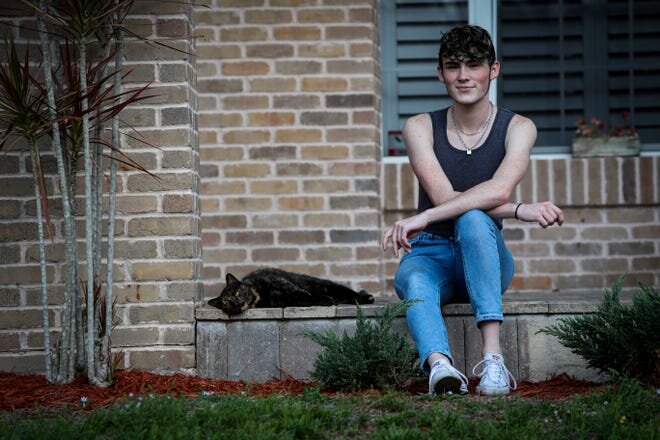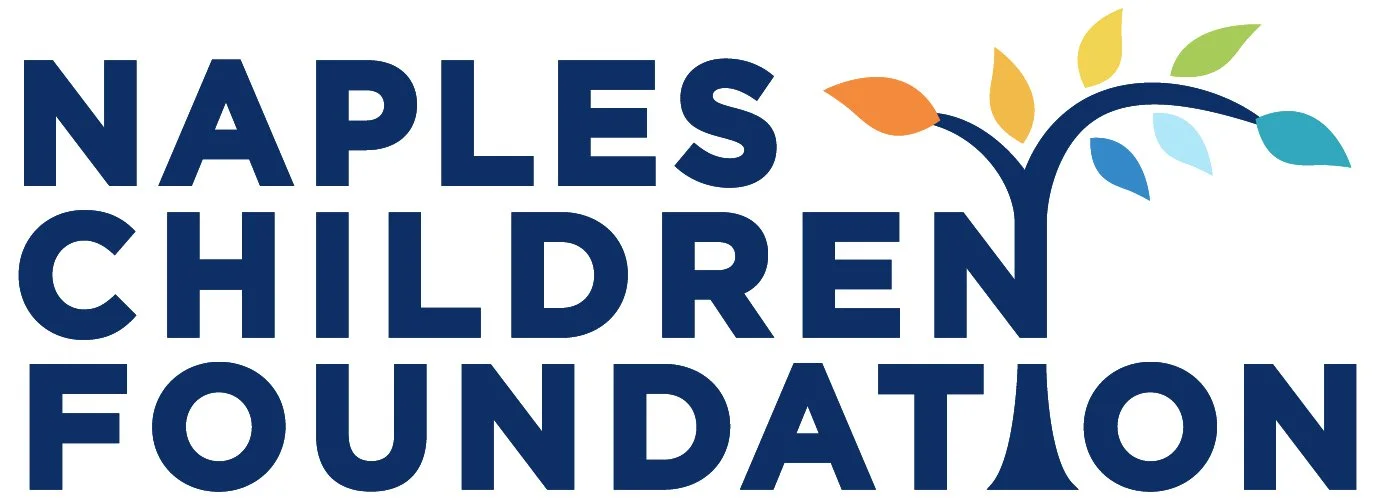COVID-19's high toll on children in Southwest Florida: Mental health needs have increased in an already strained system
/Frank Gluck | Fort Myers News-Press
Published March 17, 2021
Note: This story discusses rates of suicide, suicide attempts and self-harm. If you or someone you know need help, contact the National Suicide Prevention Lifeline at 1-800-273-8255 (en español: 1-888-628-9454; deaf and hard of hearing: dial 711, then 1-800-273-8255). You can also use the Crisis Text Line by texting HOME to 741741.
Southwest Florida's mental health care providers say services for children — already strained from years of low funding and the severe shortages of qualified psychiatrists and counselors — were stretched beyond capacity during the COVID-19 pandemic.
Involuntary psychiatric committals under the state’s Baker Act grew by more than a third last year at Southwest Florida's children's hospital and by as much as two-thirds in some months.
Overall in this region, new cases last fall grew so quickly that children were commonly forced to seek treatment in mental health centers known as "crisis stabilization units" elsewhere in the state, according to providers in Lee and Collier counties.
The Golisano Children's Hospital of Southwest Florida has also reported higher numbers of suicide attempts, incidents of self-harm and overdoses related to substance abuse. Statistics on actual suicide deaths have not been finalized, though state data show a slight uptick in Collier but no increase in Lee County for young people.
And waits for mental health counseling at agencies that provide such services on a sliding-scale basis have stretched from days to weeks.
"We are actually seeing record-breaking numbers of children," said Nancy Dauphinais, chief operating officer of The David Lawrence Center, the primary adult and pediatric mental health provider in Naples. "And that's even with several periods of quarantine, where we had to actually halt all new admissions and divert them elsewhere. We've been so full that there've been so many days that we've had to transfer kids, where they've had to go directly from the hospital straight out of the county because we don't have room for them."
In 2019: She's 16, suicidal. An overburdened system responds in slow motion
Florida kids are getting sent to psychiatric units under the Baker Act in record numbers
In 2016: Out of the darkness: Putting a face on suicide
Administrators with the Lee County-based SalusCare, which is the largest mental health provider in Southwest Florida, say much the same.
Its own Baker Act admissions for children increased an uncharacteristically high 30% this fall, just as children went back to school and their mental health problems became obvious, said Stacey Cook, president and CEO of SalusCare.
"We don't usually see an immediate uptick in admissions right when we start the school year off," Cook said. "It's very different than a normal year."
Southwest Florida may reflect a national trend.
One study published in the medical journal Pediatrics found rates of suicidal thoughts and suicide attempts were notably higher in 2020 than in 2019. Though the study, based on data from one hospital system in Texas, does caution that "additional research is needed to evaluate unique risk and protective factors that may be associated with suicide risk in the context of a global pandemic.”
Also, a review of 32 billion private health insurance claims by the non-profit FAIR Health, which collects health care data and manages a large database of privately billed health care claims, found sharp increases in mental health claims among teens, as a percentage of all bill claims.
That includes a 99% increase in cases of teenage intentional self-harm in April 2020 compared to April 2019 and a 119% increase in substance abuse and overdoses in that age group, as a percentage of all bills claimed, FAIR Health found.
Other studies globally have also shown that the pandemic has had an effect.
While official Florida figures on Baker Act committals and incidents of self-harm and suicidal thoughts among children are largely not yet available for 2020, records obtained from the region's health care providers and the state's Department of Health illustrate why Southwest Florida health agencies are concerned:
The number of Baker Act committals from The Golisano Children's Hospital of Southwest Florida increased from 154 in 2019 to 210 in 2020 — more than a 36% increase. Golisano officials say the September-October numbers were up 66% compared to those two months in 2019.
Outpatient mental health-related visits to the children's hospital, which has sharply increased such outpatient services in the last five years, totaled 9,488 in 2020, according to hospital records released under Florida's open records law. That's a 17% increase over the 8,132 who visited in 2019.
Patients showing up at Golisano for medical issues related to suicidal thoughts and/or intents grew from 196 in 2019 to 239 the following year, records show. That's a 22% increase.
The number of suicides in Collier County involving people up to the age of 24 increased from two to seven between 2019 and 2020, according to preliminary Department of Health figures. Lee County did not see as sharp an increase. Suicides among young people rose from eight to 10 — numbers lower than in recent years.
The region's mental health experts blame the increase in psychological problems on prolonged at-home schooling, much more time spent on social media, worries about sick loved ones and the economic hardships many Southwest Florida families have faced over the last 12 months.
"The kids are telling me that they see their parents worried about finances, they're worried about illness," said Jennifer Walls, an emergency department physician at Golisano. "There's no good outlet for these kids, where before they could go to school and interact in different environments."
Kole Yates, an 18-year-old high school senior has struggled during the pandemic and talks about the mental health toll it has taken on him. Andrea Melendez/The News-Press/USA Today, Florida Network
A year of isolation and anxiety
Kole Yates, 18, is a high school senior in Fort Myers who, like many students in 2020 (and even to this day), is getting his lessons via computer.
His caution is not just for his own sake. His parents are older — his father is nearly 70 and his mother is nearly 60 — and are at high risk for COVID-19 complications. And, he said, many of his fellow students at Canterbury School don't really take the pandemic seriously, even though the school itself has been doing so.
Yates, who also has a history of anxiety and depression and has been diagnosed with attention deficit disorder, also stopped going to therapy more than six months ago when his counselor came down with the virus.
He said all of this has led to his struggling to pay attention and keep his grades up. And while going to school had been a source of anxiety in the past, the last year of extra alone time has been stressful.
"It's been really difficult being holed up and, you know, in the house and not really able to communicate with others. I'm a big communication person; I love to talk to people," said Yates, who lives in Alva. "Being inside for this long had definitely made my anxiety 10 times worse. It's so weird to go out and talk to people and interact because it doesn't feel natural anymore."
Kole Yates, an 18-year-old high school senior has struggled during the pandemic and talks about the mental health toll it has taken on him. Andrea Melendez/The News-Press/USA Today, Florida Network
The last year has also changed his view of social media. "It's really showed me that it's so important to be in person with people," he said.
Angela Melvin, founder of Valerie's House, a Lee and Collier support service founded in 2014 for children and families who have experienced deaths in their families, said she has seen a noticeable increase in children struggling because of the pandemic.
And, in a worrying first, she said she's heard from "several" families who had a loved one under 13 die by suicide.
Families in those cases are convinced that isolation, and too much time spent on social media, played a role, Melvin said. That, coupled with continuing news about the pandemic and political unrest, is taking a toll, she said.
"You have social unrest, you have the presidency, and just the meanness back and forth. And then you have the violence and you have the fear of dying — you know, are their parents going to die or their grandparents are going to die, walking around with something covering up their face 24/7," Melvin said. "Can you imagine taking that on as a 10-year-old right now?"
A shortage of services
Southwest Florida mental health agencies, hospitals and law enforcement have long lamented the shortage of mental health services in this region. But the problem isn't limited to just this area.
Florida ranks last among states in per-person funding of mental health services. The state's $36 per person in spending is ahead of only one U.S. jurisdiction, Puerto Rico, where the per capita spending is about $20.
Low funding means less money to expand mental health facilities and pay for qualified mental health counselors, staffers and, particularly, psychiatrists — a profession already not keeping up with demand for services. Many can also find much higher wages elsewhere.
Lee County has one mental health provider for every 930 people, an improvement from recent years but well short of the state average of one for every 620 and top-performing U.S. communities with one for every 290, according to the University of Wisconsin Population Health Institute.
In Collier County, the rate is one for every 1,000 residents, according to the Population Health Institute. That's roughly the rate it's had for years.
Mental health providers who specialize in care for children are in even shorter supply, local health care experts say.
"We had a pretty significant mental health crisis prior to COVID: depression, anxiety, suicide, complex trauma, domestic violence — all that sort of thing," said Paul Simeone, vice president of mental and behavioral health for Lee Health. "COVID just took everything and amplified it. So all of the symptoms that were present have gotten much worse, across the board."
A crisis without end:Florida ranks last among states in spending for mental health
Expanding mental health care
The sharp growth of children's' mental health care needs does come as Southwest Florida continues to slowly expand services.
Though they're often at capacity, mental health crisis units in Lee and Collier have expanded in recent years by adding a handful of beds. They can now, combined, house more than 30 children.
Nearby Charlotte Behavioral Health, which also expanded five years ago, has a 30-bed unit to use for children or adults.
Five years ago, Lee Health had a single inpatient psychiatrist. Then, in 2018, Lee Health launched its "Kids' Minds Matter" initiative to expand mental health services for children and make it a major piece of its fundraising efforts.
Since then Lee Health has hired 29 new mental health providers, including five psychologists, three pediatric psychiatrists and two mental health counselors. It also offers a variety of services, including a LGBTQ+ group for teens ages 13 to 17 in Lee, Collier, Charlotte, Hendry and Glades counties.
"One of the main factors in the increase in the number of visits is the addition of new providers which has improved access to these services for children," Lee Health spokesman Jonathon Little said.
But Simeone says that expansion in services is not keeping up with demand.
"Even though we've increased the (patient) visit rate at Golisano by 3,000% over the last couple of years, there's still a six- to eight-week wait," he said. "It's frustrating."
The pandemic has also led to a dramatic expansion of telehealth services, including in the mental health realm.
"Telehealth can be very effective if that's all we have available," said Dauphinais of The David Lawrence Center. "We have capacity for individuals to participate through that. So, help is available."
Frank Gluck is a watchdog reporter with The News-Press and the Naples Daily News. Connect with him at fgluck@news-press.com or on Twitter: @FrankGluck













